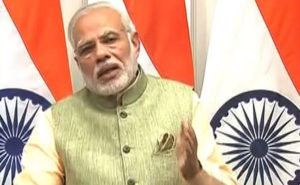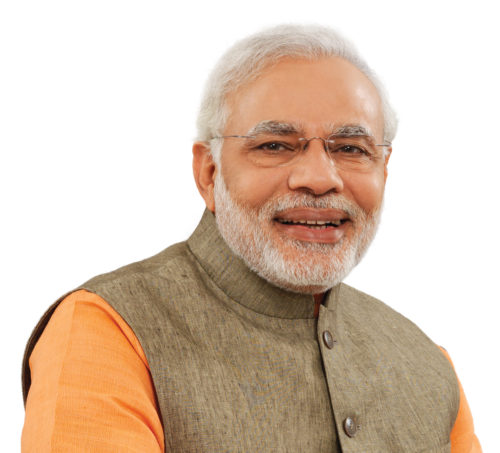New Delhi– Prime Minister Narendra Modi on Wednesday said that it was the mindset of the people and not resources that was hampering the spread of digital technology.
Inaugurating a digitally secured and transparent environment in case filing and management – a step towards making the Supreme Court “paperless”, Modi assured that digital adoption would not take away jobs but will instead enhance efficiency.
“The problem is less of budget but more of mindset,” Modi said as he pointed out that people with smartphones still carry diaries with contact details.
Addressing people’s apprehensions, Modi pointed to the fact that even in cricket matches doubts were settled by the third umpire. But that did not diminish the role of the two field umpires.
 Modi also reminded that Indian space scientists have been successful in sending Mangalayan to Mars at a budget less than what was required for producing a Hollywood film.
Modi also reminded that Indian space scientists have been successful in sending Mangalayan to Mars at a budget less than what was required for producing a Hollywood film.
The Prime Minister regretted: “We are far far behind in the application of technology in our daily lives.”
Modi said space technology has also helped in governance by securing the tribals their land rights.
He said technology was able to achieve in 30 years what men have taken thousands of years to achieve.
The Prime Minister also referred to artificial intelligence (AI) and said that it would create new avenues and environment which the new generation has to be prepared for.
He scoffed at the suggestions in some circles that AI would render people redundant.
Modi explained the advantages of digitalisation that would also help in saving resources and conserving the environment.
He said one A4 size paper requires 10 litres of water to prepare it. So, switching over to e-working would help to save water, jungles, power and other resources, besides helping the economy.
He said resource thus saved could then be used for the benefit of the poor.
Lauding the Supreme Court for taking steps towards paperless courts, he urged the lawyers to extend free legal aid to the poor litigants.
“To make judiciary more effective, use of forensic science and technology is very important… the world is moving very fast and we have to cope up to avoid being left behind,” he said.
Chief Justice Jagdish Singh Khehar in his introductory remarks elaborating how the Integrated Case Management System (ICMS) would involve one time filing of the case said that it would be totally transparent and secure with all the stake holders knowing each other and every aspect of their case.
Khehar said that he proposes to take the system to all the high courts and the subordinate courts.
Justice Dipak Misra in his welcome address said that paperless court is not an idea but an environment-friendly initiative coupled with empowering the litigant.
Referring to a former Chief Justice, who had shelved the idea of WiFi use in the top court on security grounds, Justice J. Chelameswar wondered that if WiFi used in the Pentagon did not pose a threat, how could it pose a threat to the security of the top court. (IANS)





